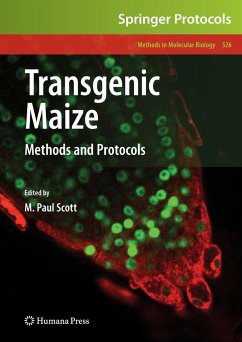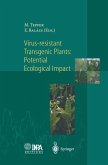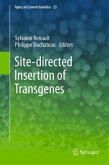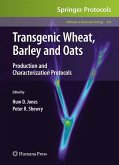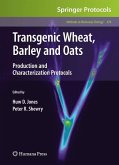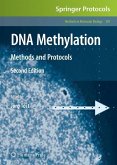As increasing global population and continuing economic development ensure the need for further production and cultivation of maize, the necessity of the application of transgenic technology to this model species and crop plant grows steadily. In Transgenic Maize: Methods and Protocols, experts in the various disciplines of the field contribute readily reproducible protocols covering such topics as transformation methods, transgenic maize in research, the analysis of transgenic plants, and breeding with transgenes. Written in the highly successful Methods in Molecular Biology(TM) series format, the chapters present brief introductions to their respective topics, lists of the necessary materials and reagents, step-by-step laboratory protocols, and notes on troubleshooting and avoiding known pitfalls.
Cutting-edge and easy to use, Transgenic Maize: Methods and Protocols will greatly aid researchers wishing to use these procedures in their own laboratories, and will provide readers with a better understanding of the experiments being performed by cooperators or fee-for-service labs.
Cutting-edge and easy to use, Transgenic Maize: Methods and Protocols will greatly aid researchers wishing to use these procedures in their own laboratories, and will provide readers with a better understanding of the experiments being performed by cooperators or fee-for-service labs.
From the reviews:
"This book is number 526 in the popular 'Methods in Molecular Biology' series, which is renowned for its targeted protocol chapters, each with photographs, recipes and a set of notes for additional practical guidance and to avoid common pitfalls. ... There is a lot to like about this collection of practical chapters, which represent an excellent investment for the applied maize researcher, who could be a student doing an undergraduate project through to a professional scientist in a dedicated transformation laboratory." (Huw D. Jones, Annals of Botany, Vol. 109 (7), June, 2012)
"This book is number 526 in the popular 'Methods in Molecular Biology' series, which is renowned for its targeted protocol chapters, each with photographs, recipes and a set of notes for additional practical guidance and to avoid common pitfalls. ... There is a lot to like about this collection of practical chapters, which represent an excellent investment for the applied maize researcher, who could be a student doing an undergraduate project through to a professional scientist in a dedicated transformation laboratory." (Huw D. Jones, Annals of Botany, Vol. 109 (7), June, 2012)

